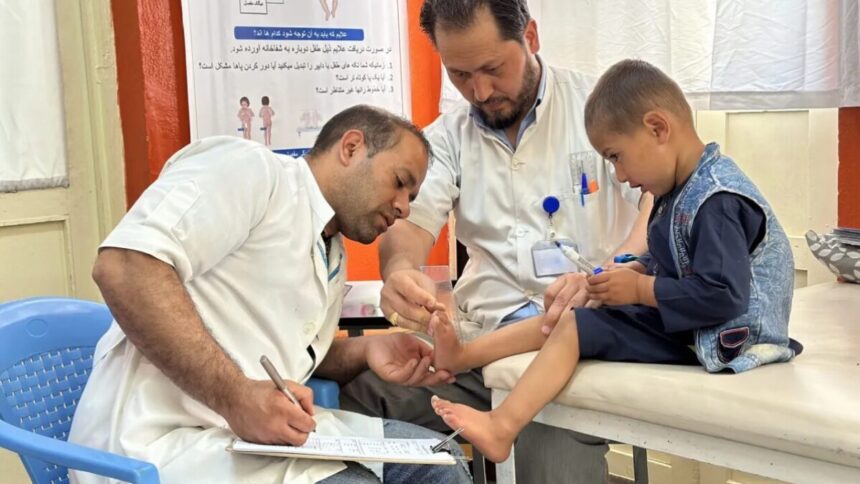RASC News Agency: December 3, commemorating the International Day of Persons with Disabilities, the European Union expressed grave concern over the dire challenges confronting individuals with disabilities in Afghanistan, particularly their limited access to healthcare and rehabilitation services. In a statement published on X (formerly Twitter), the EU reaffirmed its unwavering commitment to supporting people with disabilities and called on the global community to intensify efforts to establish an inclusive society by ensuring essential services reach all those in need.
Marking the occasion, the International Committee of the Red Cross (ICRC) revealed that globally, 2 to 3 out of every 1,000 children are born with cerebral palsy, though the incidence is notably higher in Afghanistan. The ICRC underscored that children suffering from this condition in Afghanistan, particularly in rural regions, often go undiagnosed due to inadequate diagnostic tools and a lack of sufficient healthcare infrastructure. The ICRC reported that 64,121 individuals with cerebral palsy are currently under treatment within Afghanistan. As part of its extensive rehabilitation program the largest of its kind in the country the organization has extended services to over 200,000 patients across seven specialized centers offering physical and social support. In its statement, the ICRC conveyed a sense of hope:
“The resilience demonstrated by Afghanistani communities in enhancing the lives of children with cerebral palsy is truly inspiring. Through the provision of orthotic devices, prosthetics, physiotherapy, and professional training, we remain committed to supporting these patients.” Between January and September 2024, the ICRC delivered critical rehabilitation services to 11,043 individuals with cerebral palsy across Afghanistan, including 4,461 girls. Despite numerous challenges, the ICRC continues to address the urgent needs of this vulnerable population, reinforcing its dedication to improving their quality of life.






